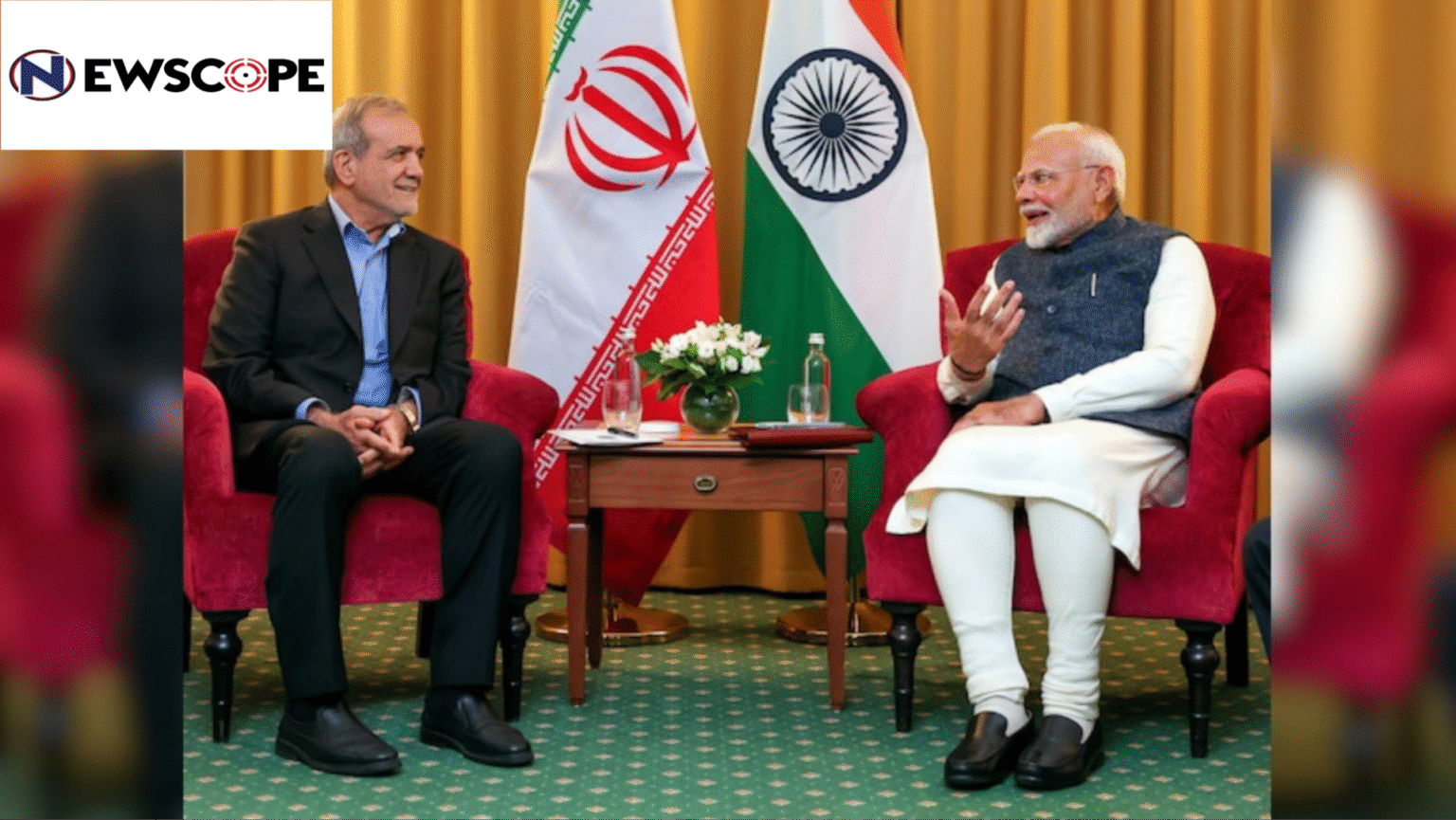Hours after the U.S. struck three prominent nuclear sites in Iran, Prime Minister Narendra Modi on Sunday (June 22, 2025) spoke with the President of Iran, Masoud Pezeshkian, and called for “immediate de-escalation”. The remark is the first from India, which is a strategic partner of Iran. The two sides have been engaging closely in ensuring the safety of Indian citizens in Iran since the West Asia conflict escalated on June 13. The conversation between the two leaders is significant as it came ahead of an emergency meeting of the Board of Governors of the International Atomic Energy Agency (IAEA) in Vienna, where the U.S. attack on Iran will be the main subject of attention.
“Spoke with President of Iran Dr Pezeshkian. We discussed in detail about the current situation. Expressed deep concern at the recent escalations. Reiterated our call for immediate de-escalation, dialogue and diplomacy as the way forward and for early restoration of regional peace, security and stability,” Mr. Modi stated after speaking with Dr. Pezeshkian.
Mr. Modi thanked Dr. Pezeshkian for helping India in ensuring the “safe return and repatriation” of Indian nationals from Iran in the last few days, the Ministry of External Affairs (MEA) said.
India and Iran maintain close communication on multiple bilateral and multilateral issues, and New Delhi hosted Iranian Foreign Minister Seyed Abbas Araghchi on May 7-8, 2025 for the 20th Joint Commission Meeting between India and Iran.
Officials here hinted that they were closely watching the developments in Iran, where the U.S. struck nuclear sites in Fordow, Natanz, and Esfahan. “We have completed our very successful attack on the three Nuclear sites in Iran, including Fordow, Natanz and Esfahan,” U.S. President Donald Trump announced in a post on social media platform Truth Social early on Sunday morning.
Mr. Trump further said that a “full payload” of bombs had been dropped on the secretive Fordow uranium enrichment facility. The choice of the Iranian targets, and the remarks from the U.S. political leadership resulted in concern over the fallout of radioactivity from the nuclear energy centres that were hit.
Following the U.S. attacks on the three nuclear sites, the Iranian Foreign Minister called on all UN member states to condemn the U.S. action, and indicated Tehran’s changing position on furthering nuclear negotiation with the Western powers. “Last week, we were in negotiations with the U.S., when Israel decided to blow up that diplomacy. This week, we held talks with the E3 [Germany, the U.K. and France]/EU [European Union] when the U.S. decided to blow up that diplomacy. What conclusion would you draw? To Britain and the EU High Rep, it is Iran which must ‘return’ to the table. But how can Iran return to something it never left, let alone blow up?” Mr. Aragchi said in a message posted on his social media handles.
The officials here indicated they were also studying the developments at the IAEA, which was working with the Iranian government to ensure the nuclear facilities at Natanz, Fordow and Esfahan operated in accordance with safety protocols. India will participate in an emergency meeting of the IAEA’s Board of Governors on Monday. According to the UN, the IAEA also monitored “radiation measures” and evaluated emergency preparedness at these sites in Iran, which has been a member of the Nuclear Non-Proliferation Treaty. India is one of the 35 members of the Board of Governors of the IAEA, which supervises the nuclear domain worldwide.
“In view of the increasingly serious situation in terms of nuclear safety and security, the Board of Governors will meet in an extraordinary session tomorrow, which I will address,” the IAEA’s Director General Rafael Mariano Grossi said in a statement calling for an emergency meeting of the world nuclear body’s Board of Governors on Monday.
Meanwhile, 311 Indian nationals returned to New Delhi on a special flight from Mashhad in Iran at 4.30 p.m. on Sunday (June 22, 2025). With this flight, 1,428 Indian nationals have now been evacuated from Iran, the MEA’s official spokesperson Randhir Jaiswal said. One more flight was on track to bring back Indian nationals from Mashhad in Iran to New Delhi’s Indira Gandhi International Airport (Terminal 3) late on Sunday (June 22, 2025).
India has been in contact with Iran, Israel and other countries, including Armenia, the UAE and Egypt, to evacuate citizens under Operation Sindhu from crisis spots. Following the escalation of the conflict, both Iran and Israel had shut down their respective airspaces, prompting Indians to leave through Iran’s land borders with Armenia and Turkmenistan. The Indian government began evacuating Sri Lankan and Nepali citizens on Saturday.
In a message to the international community and members of the UN, Iran’s Foreign Ministry on Sunday called upon the UN and its “responsible member states” to “fulfill their responsibilities” in the face of the attack by the U.S. “We urge the UN Security Council to convene an emergency session to unequivocally condemn this criminal act of aggression by the United States against Iran and to hold the United States accountable for its egregious violation of the fundamental principles of United Nations Charter and of the norms of international law,” the Iranian Foreign Ministry said.
“Iran reserves the right to take appropriate and necessary actions, in its national interest, to respond decisively to this unlawful and hostile action,” the Iranian Ambassador to India, Iraj Elahi, said in a separate statement to India.



